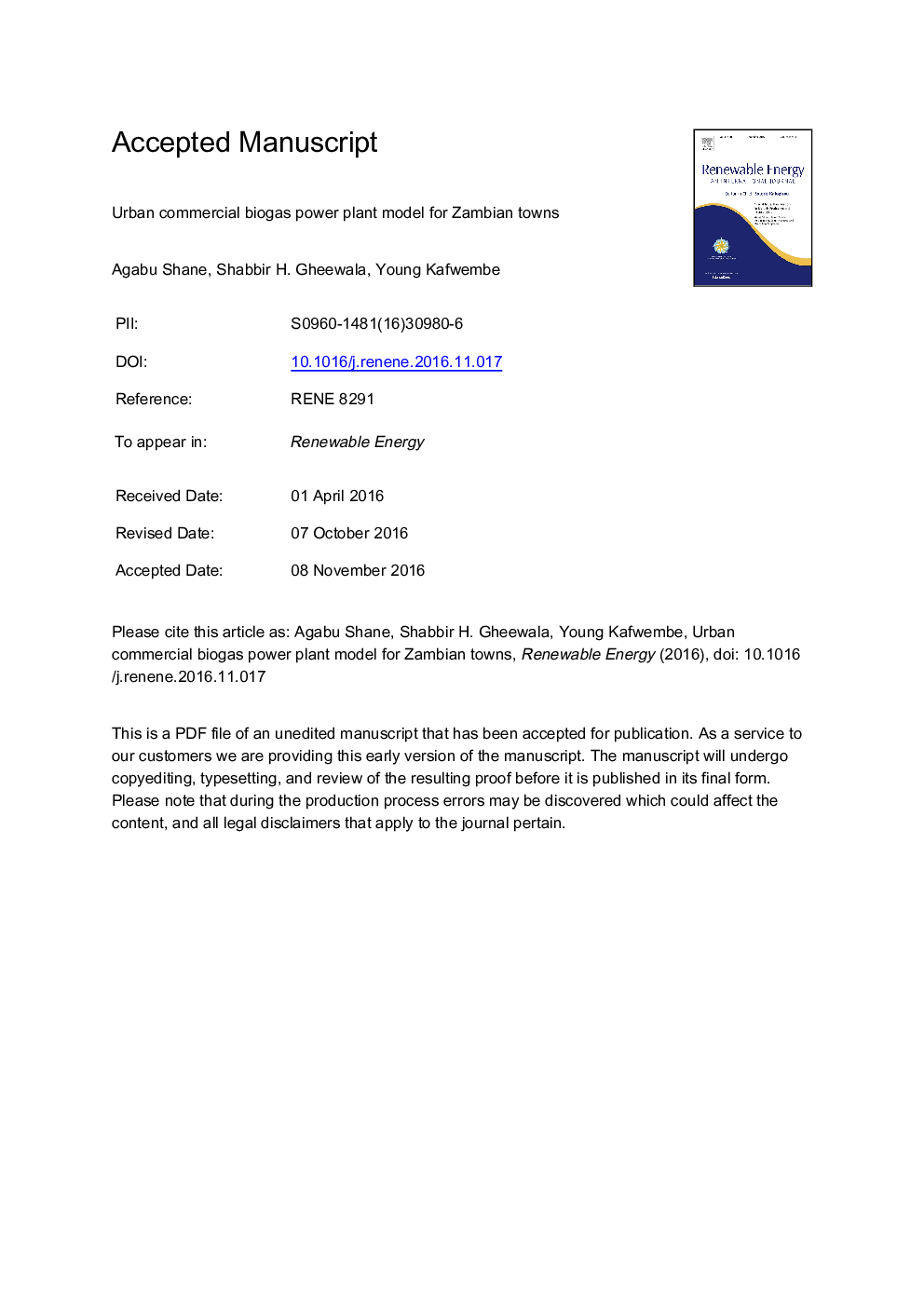| Article ID | Journal | Published Year | Pages | File Type |
|---|---|---|---|---|
| 4926550 | Renewable Energy | 2017 | 34 Pages |
Abstract
The prospect of producing biogas from municipal solid waste (MSW) is high in urban towns of Zambia. However, the feasibility of establishing biogas-based power plants needs to be assessed in relation to the existing potentials, barriers and prospects. Technical potentials though available in urban towns, need to be modeled with a business view. The paper presents such an assessment of potential benefits and suggests ways to overcome barriers such as financing, regulatory framework, incentives and lack of information and data. Once the barriers are overcome, biogas-based power plants could be established in urban towns. These aspects are illustrated through a real case study of Kitwe town, which has the potential to install a 1.164 MW power plant. A simple payback period (PBP) calculation indicates that the power plant would have a 2 years payback period and the Net Present Values (NPV) at 18% interest base rate would be 2,515,000 ⬠and after performing a sensitivity analysis, the project becomes unviable at 28% interest rate (â250 â¬). Other benefits that would come as a result of a biogas-based power plant in Kitwe are: 2.308 Gg CO2eq yâ1 avoided greenhouse gas (GHG) emissions, 1.235 Gg yâ1 nitrogen would be conserved and 920 t yâ1 of organic fertilizer would be produced.
Keywords
Related Topics
Physical Sciences and Engineering
Energy
Renewable Energy, Sustainability and the Environment
Authors
Agabu Shane, Shabbir H. Gheewala, Young Kafwembe,
